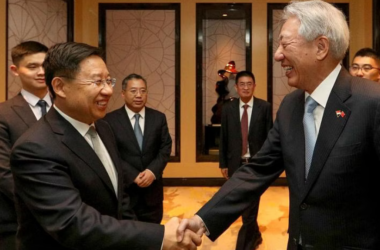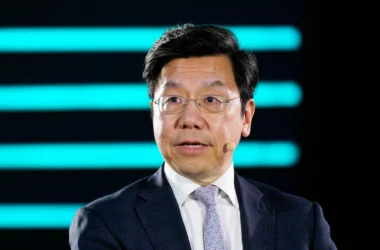September turned out to be a good month for Southeast Asian startups.
As per the proprietary data collated by DealStreetAsia, startups in the region raised US$1.1 billion last month, up 126% from August. This is the third time in 2023 that startup fundraising has crossed the US$1 billion mark in Southeast Asia.
Among the regional startups that bagged funds this year, there seems to be a steady increase in the number of AI companies. As of September, 27 Southeast Asian AI startups have already received funding this year, compared to 32 AI startups in the entire 2022, a Tech in Asia report said.
Overall, Singapore has the most AI startups in the region—116—given that the city-state has investment-friendly policies and a higher number of skilled workers in the field. Other Southeast Asian countries lag far behind though.
Investors’ interest in regional AI startups has been rising rapidly since last year, particularly after the release of ChatGPT.
Add the fact that the number of businesses adopting AI has surged in Asia Pacific, jumping to 76% in 2022 from 39% in 2021. In line with this trend, AI spending in Southeast Asia is projected to rise from US$174 million in 2022 to an estimated US$646 million by 2026.
No surprise then that the majority of the AI startups in the region are involved in AI infrastructure, meaning they optimize AI models for specific uses or develop software frameworks and tools to enable other organizations to create, deploy, and manage AI projects.
AI startups are going to continue garnering more interest in the region. Not just because of the widespread use of generative AI, but also because Southeast Asian countries are adopting more lenient AI regulations to prioritize innovation.
A Reuters report noted that ASEAN is looking to take a lenient approach to AI regulation, unlike the stringent framework of the European Union. It will have a more business-friendly approach that allows for innovation while reducing compliance burden. These rules are still under review, which is likely to be completed by January 2024.
On that note, let’s dive into this week’s recap.

Fundraising Soars
The fundraising by private investors focused on Southeast Asia continues as they remain bullish about the region.
Singapore-based private credit investor Orion Capital Asia has raised US$205 million for the first close of its latest fund. This fund will explore direct lending opportunities in the Asia-Pacific region. The company provides medium-term secured loans to midmarket businesses that have been underserved by traditional banking channels. The fund will finance growth capital, acquisitions, and other corporate initiatives.
Singapore-based East Ventures is partnering with Seoul-based VC firm SV Investment to launch a US$100 million fund, which aims to back Southeast Asian and Korean startups in sectors like biotech and healthcare, future mobility, greentech, and media and content. This partnership is expected to open the investment corridor between Southeast Asia and South Korea. In addition, the fund aims to help South Korean companies go public internationally and increase knowledge-sharing.
Hong Kong VC CMCC Global has raised US$100 million in the first close of its new Web3-focused venture fund, which will invest in startups in the blockchain space. Dubbed Titan Fund, it will target early-stage startups in three areas—infrastructure, fintech, and consumer applications such as gaming, metaverse, and NFTs. Blockchain.one (B1) has become the fund’s anchor investor with a US$50 million contribution and now owns a minority stake in CMCC Global’s holding entity, backed by investors such as billionaire Richard Li and Gemini Trust co-founders Cameron and Tyler Winklevoss.
Singaporean VC firm Jungle Ventures, which invests in Southeast Asia and India, has launched a new program called First Cheque@Jungle to support entrepreneurs at the idea, pre-seed, and seed stages. It also plans to lead or co-lead subsequent series A funding rounds. Along with mentorship, community, and resources, the sector-agnostic program will offer a minimum of US$2 million investment. The funding for First Cheque will come from Jungle Ventures’ US$600 million fund, which it closed last year.

What Stood Out This Week
Nasdaq-listed Vietnamese electric vehicle producer VinFast aims to invest US$400 million in India and Indonesia to build CKD factories with the aim to reach 50 markets by the end of 2024. CKD refers to cars that are completely knocked down. It means that VinFast is likely to ship such units from Vietnam and assemble them in India and Indonesia. The funds will be divided roughly evenly for the first phase of two new plants. The company is targeting a capacity of 50,000 EVs a year per facility, with production starting in 2026.
Weeks after Indonesia barred TikTok from selling directly on the platform, Alibaba-owned Southeast Asian ecommerce firm Lazada is courting sellers in the country. This past week, Lazada’s Indonesian platform waived all fees for sales made via live streaming. It is also offering incentives for new sign-ups. Lazada Indonesia CEO James Chang told employees in a town hall that the company is supporting micro, small and medium-sized enterprises (MSMEs) impacted by the recent regulatory changes by onboarding them to Lazada. Meanwhile, Lazada has partnered with the Seoul Business Agency to help South Korean small and medium enterprises expand their operations to Southeast Asia. Under the partnership, Lazada will onboard these SMEs to its platform, starting with its Singapore marketplace.
Indonesian aquaculture firm eFishery plans to expand in India—where it has conducted a pilot project for the past year—in the first quarter of 2024. This will be the company’s first foray outside the home country. e-Fishery said it chose India due to the market’s similarities with Indonesia. The company will also look at venturing into Vietnam, Thailand, the Philippines, and Malaysia, though India will remain eFishery’s only focus for next year. In addition, the firm has launched a blockchain-based digital cooperative for fish farmers, which aims to connect players in the fish and shrimp farming industries across the supply chain.
South Korean online-only bank KakaoBank plans to acquire a 10% stake in Indonesia-based Superbank, which is backed by the Singapore Telecommunications and Grab. KakaoBank will acquire the stake through the issuance of new shares. This comes as Superbank gears up for the launch of its app to the public in 2023. Superbank plans to offer personalized financial services to underbanked retail clients and MSMEs in Indonesia. With this deal, KakaoBank will actively collaborate in developing the upcoming digital bank’s products and services. The move is expected to strengthen KakaoBank’s expertise in the Southeast Asian market.

Buzzing Deals
There were plenty of deals this week, which underlines the continuing dealmaking momentum in Southeast Asia.
- Singapore-based Circular, which rents out and sells refurbished and new devices at lower prices, has raised US$7.6 million in seed funding led by AirTree Ventures. YC Continuity Fund, Global Founders Capital, Partech Ventures, and January Capital, among others, participated in the round. The two-year-old startup has seen a 3x growth over the last 12 months. Circular plans to use new funds to expand its presence in Singapore and Australia by focusing on its B2B offerings.
- Jakarta-based Good Doctor Technology has landed a US$10 million series A check from Telkom Indonesia’s MDI Ventures and existing investor Grab. Good Doctor is a B2B2C healthcare platform which partners with healthcare providers and insurance companies to serve corporate clients and individual patients. Good Doctor was founded in 2018 as a joint venture between Ping An Healthcare and Technology, Grab, and Softbank. Following this investment, Good Doctor said it would no longer be a joint venture. Instead, Grab and SoftBank have become minority shareholders along with MDI, while Ping An has exited. Good Doctor, which has over 100 partners catering to its 15 million across Indonesia, Singapore, and Thailand, will deploy the funds to improve its tech platform and develop new products and services.
- Singapore and US-based AI startup Aampe has just received US$7.5 million pre-series A funding from Matrix Partners India and Peak XV Partners (formerly Sequoia Capital India & Southeast Asia). Founded in 2020, Aampe enables marketers to increase customer engagement through personalised messaging. Its tech personalizes an app’s marketing messages based on users’ responses, clicks, and follow-up actions. Marketers can then collect insights within a dashboard to understand individual user preferences, behaviours, and motivations.
- Jakarta-based Islamic fintech firm Alami Group, which runs online lender Alami and digibank Hijra Bank, has secured an undisclosed amount of new funding in a round led by Intudo Ventures. The company said it is a growth investment round, which it will use to scale and expand as well as to launch new offerings such as Hijra Home Financing, a mortgage product. Other investors who participated in the round included East Ventures, Quona Capital, Golden Gate Ventures, and AC Ventures.
- Singapore-based social media startup Republik has raised US$6 million in seed funding at a valuation of US$75 million. OKX Ventures, 6th Man Ventures, Arcane Ventures, CMS Holdings, Comma3 Ventures, and Define Ventures, among others, participated in this round. Republik helps content creators earn money with Web3. The company’s platform—still in the beta phase—allows creators and their communities to earn tokens based on interactions and referrals as well as by supporting fellow creators.
- Malaysian startup, Worq, which provides co-working and flexible spaces, has completed its undisclosed pre-series B round led by existing investor Phillip Capital Management, a global asset management firm. Established in 2015, the startup will use the new capital to double its space under management by the end of 2023 and increase its network of locations across Malaysia.
- Filipino agritech startup Kita has received US$3 million in a seed round from Gentree Fund and Altara Ventures. The one-and-a-half-year-old startup aims to digitize the agriculture supply chain in the country. It currently sources fruits and vegetables from farmers for direct sales to B2B clients in the local hospitality industry.
And that’s the wrap for this edition of #ICYMI. We will continue to curate the weekly highlights of the Asian tech ecosystem in case you missed what made the buzz in the week that just went by. You can subscribe to #ICYMI to get it every Thursday to stay abreast of noteworthy tech developments.






